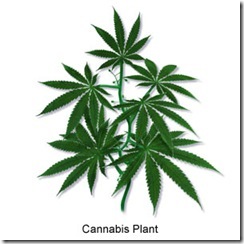 In the late-1980s heyday of the anti-drug “Just Say No” campaign, a man calling himself “Jerry” appeared on a Seattle talk radio show to criticize U.S. marijuana laws.
In the late-1980s heyday of the anti-drug “Just Say No” campaign, a man calling himself “Jerry” appeared on a Seattle talk radio show to criticize U.S. marijuana laws.
An esteemed businessman, he hid his identity because he didn’t want to offend customers who — like so many in those days — viewed marijuana as a villain in the ever-raging “war on drugs.”
Now, a quarter century later, “Jerry” is one of the main forces behind Washington state’s successful initiative to legalize pot for adults over 21. And he no longer fears putting his name to the cause: He’s Rick Steves, the travel guru known for his popular guidebooks.
“It’s amazing where we’ve come,” says Steves of the legalization measures Washington and Colorado voters approved last month. “It’s almost counterculture to oppose us.”
A once-unfathomable notion, the lawful possession and private use of pot, becomes an American reality this week when this state’s law goes into effect.
Thursday is “Legalization Day” here, with a tote-your-own-ounce celebration scheduled beneath Seattle’s Space Needle — a nod to the measure allowing adults to possess up to an ounce of pot. Colorado’s law is set to take effect by Jan. 5.
How did we get here? From “say no” to “yes” votes in not one but two states?
The answer goes beyond society’s evolving views, and growing acceptance, of marijuana as a drug of choice.
In Washington — and, advocates hope, coming soon to a state near you — there was a well-funded and cleverly orchestrated campaign that took advantage of deep-pocketed backers, a tweaked pro-pot message and improbable big-name supporters.
Good timing and a growing national weariness over failed drug laws didn’t hurt, either.
“Maybe … the dominoes fell the way they did because they were waiting for somebody to push them in that direction,” says Alison Holcomb, the campaign manager for Washington’s measure.
Washington and Colorado, both culturally and politically, offered fertile ground for legalization advocates — Washington for its liberal politics, Colorado for its libertarian streak, and both for their Western independence.
Both also have a history with marijuana law reform. More than a decade ago, they were among the first states to approve medical marijuana.
Still, when it came to full legalization, activists hit a wall. Colorado’s voters rejected a measure to legalize up to an ounce of marijuana in 2006. In Washington, organizers in 2010 couldn’t make the ballot with a measure that would have removed criminal penalties for marijuana.
Since the 1970 founding of the National Organization for the Reform of Marijuana Laws, reform efforts had centered on the unfairness of marijuana laws to the recreational user — hardly a sympathetic character, Holcomb notes.
That began to change as some doctors extolled marijuana’s ability to relieve pain, quell nausea and improve the appetites of cancer and AIDS patients.
The conversation shifted in the 1990s toward medical marijuana laws. But even in some states with those laws, including Washington, truly sick people continued to be arrested.
Improved data collection that began with the ramping up of the drug war in the 1980s also helped change the debate. Late last decade, with Mexico’s crackdown on cartels prompting horrific bloodshed there and headlines here, activists could point to a stunning fact: In 1991, marijuana arrests made up less than one-third of all drug arrests in the U.S. Now, they make up half — about 90 percent for possession of small amounts — yet pot remains easily available.
“What we figured out is that your average person doesn’t necessarily like marijuana, but there’s sort of this untapped desire by voters to end the drug war,” says Brian Vicente, a Denver lawyer who helped write Colorado’s Amendment 64. “If we can focus attention on the fact we can bring in revenue, redirect law enforcement resources and raise awareness instead of focusing on pot, that’s a message that works.”
With a potentially winning message, the activists needed something else: messengers.
Steves, who lives in the north Seattle suburb of Edmonds, was a natural choice — the “believable, likeable nerd,” as he calls himself. Known for his public television and radio shows, as well as his “Europe through the Back Door” guide books, he openly advocated in 2003 for a measure that made marijuana the lowest priority for Seattle police.
He already knew Holcomb, who had been the drug policy director at the American Civil Liberties Union of Washington state. The ACLU chapter recognized that voter education would be crucial to any future reform, especially after polling revealed that many voters didn’t even know Washington had a medical marijuana law.
Holcomb helped recruit Steves to star in a 2008 infomercial designed to get people talking about marijuana law reform. The video was aired on late-night television and at forums held across the state, during which experts in drug policy answered questions from audiences.
In November 2009, John McKay, the former Seattle U.S. attorney, agreed to appear on one of those panels. McKay was well respected, from a prominent Republican family and had served as the Justice Department’s top prosecutor in western Washington — charged with carrying out U.S. drug laws.
He called for a top-to-bottom review of the nation’s drug war and endorsed regulating marijuana like alcohol.
Suddenly, the legalization movement had traction.
Over the next year, a voter initiative drive and legislative efforts gained steam but ultimately failed. California’s Proposition 19 legalization measure also failed in 2010. But even with little money and no significant editorial endorsements, in an off-presidential election year with lower youth turnout, Prop 19 received more than 46 percent of the vote.
Holcomb thought: Imagine what Washington could do in a presidential year, with an endorsement from McKay and some money.
So, with the backing of the ACLU’s state chapter, Holcomb formed New Approach Washington. In June 2011, the group announced Initiative 502, to legalize up to an ounce of marijuana and to create a system of state-licensed growers, processors and retail stores. It was tailored to gain mainstream support: There would be no home-growing, and there would be a DUI standard designed to be comparable to the 0.08 limit for blood-alcohol content.
The drug also would be taxed at every stage, from growing and processing to selling. State studies were done showing legalization could bring in half a billion dollars a year for schools, health care and substance-abuse prevention.
The list of co-sponsors was unimpeachable: Steves, McKay, Seattle City Attorney Pete Holmes, the former top public health officer for Spokane County, two past presidents of the state bar association, a top University of Washington addiction expert. The Seattle Times’ editorial page offered its own endorsement.
National drug-policy reform groups also were focusing on 2012. The New York-based Drug Policy Alliance saw campaigns developing in three states — Washington, Colorado and Oregon — and it had the money on-the-ground advocates so desperately needed. The alliance is funded in part by billionaire and longtime liberal political donor George Soros, who came out in favor of marijuana legalization in 2010.
The organization chipped in more than $1.6 million in Washington. The Washington, D.C.-based Marijuana Policy Project gave $1 million in Colorado.
Then came another big donor. Peter Lewis, the founder of Progressive Insurance, had used marijuana after a leg amputation and had been a big contributor to medical marijuana campaigns. His people initially told Holcomb they didn’t think I-502 would pass, but then he offered a match: If they could raise $650,000, he’d kick in $250,000. New Approach Washington met the goal, and Lewis became the campaign’s biggest donor, responsible for more than $2 million of the $6 million raised.
The money ensured that Washington’s activists could keep their message on air, and they did so effectively.
The first television ad, which aired last summer, featured a middle-aged mom saying that she didn’t like marijuana, but that taxing it would bring in money for schools and health care and free up police resources. Among women aged 30 to 50, Holcomb says, support for regulating marijuana jumped about 18 percent.
The next ads featured McKay, former Seattle U.S. Attorney Kate Pflaumer and Charles Mandigo, the former head of the FBI office in Seattle, urging approval of I-502.
Colorado’s measure didn’t have the big-name endorsements that Washington’s did, but the state had other things going for it. For one, it already had the most highly regulated medical marijuana market in the country. There, organizers were careful to appear before news cameras in suits and ties. Ads featured middle-aged women, or schoolchildren who could benefit from marijuana taxes.
Opponents tried to fight back, mounting a $543,000 campaign in Colorado, with backing from a Florida-based anti-drug group and an evangelical Christian group.
In Washington, a small group from the medical marijuana community raised $6,800 to oppose I-502. They criticized the DUI standard as arbitrarily strict and said the measure didn’t go far enough because it wouldn’t allow home-growing.
A group of nine former heads of the Drug Enforcement Administration urged U.S. Attorney General Eric Holder to publicly oppose the measures, but the DOJ and the White House remained silent.
Instead, Kevin Sabet, a former White House drug policy adviser, served as a counterpoint to the legalization campaigns. The ills of prohibition — the racial disparities in who gets busted, the lifelong consequences of a conviction for landing jobs or student loans — could be solved without legalization, which would increase the availability of marijuana for teens who are most susceptible to becoming addicted, he contended.
Yet such arguments found little support.
“When you hammer away at that message, saying we can save education and make better use of police resources and get rid of cartels, and there’s nothing to oppose that, that sounds sensible to people who aren’t hearing the other side,” Sabet says.
On Nov. 6, I-502 passed with nearly 56 percent. Colorado’s Amendment 64, which allows home-growing and does not include a drunken driving standard, passed with 55 percent.
Oregon’s Measure 80 ultimately failed. But even with little campaigning behind it, that proposal got nearly 47 percent of the vote.
As they await word about whether the Justice Department will try to block the measures from taking effect, national drug-law reform groups are salivating over their chances in 2014 and 2016.
California? Nevada? Massachusetts?
“Something is happening, and it’s not just happening in Washington and Colorado,” says Andy Ko, who leads the Campaign for a New Drug Policy at Open Society Foundations. “Marijuana reform is going to happen in this country as older voters fade away and younger voters show up. Legislators see this as something safe to legislate around.
“They see the writing on the wall.”
Kristen Wyatt contributed from Denver
Source: Associated Press (Wire)
Author: Gene Johnson, Associated Press
Published: December 2, 2012
Copyright: 2012 The Associated Press










